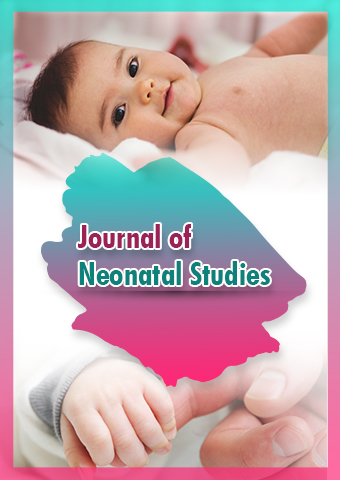Commentary - Journal of Neonatal Studies (2023) Volume 6, Issue 6
Genetic Impact: Unraveling the Influence of Genes on Newborn Health and Development
- Corresponding Author:
- Sarah A Inoue
Department of Genetics, University of Baghdad, Baghdad, Iraq
E-mail: sarah@ue.ed
Received: 06-Nov-2023, Manuscript No. JNS-23-121520; Editor assigned: 08-Nov-2023, PreQC No. JNS-23-121520 (PQ); Reviewed: 22-Nov-2023, QC No. JNS-23-121520; Revised: 01-Dec-2023, Manuscript No. JNS-23-121520 (R); Published: 08-Dec-2023, DOI: 10.37532/JNS.2023.6(6).164-165
Description
Genes play a crucial role in determining the traits and characteristics of a newborn child. Here’s an overview of how genes influence the development of a new individual.
Inheritance of traits
Each person has a set of genes inherited from their biological parents. These genes contain instructions for the development and functioning of the body.
Traits such as eye color, hair color, height, and certain predispositions to diseases are influenced by specific genes.
Genetic variation
The combination of genes from both parents contributes to the genetic diversity seen in individuals. This process is known as genetic recombination.
This variation ensures that each child is unique, even when born to the same parents.
Chromosomes and DNA
Genes are segments of DNA, and DNA is organized into structures called chromosomes.
Humans typically have 23 pairs of chromosomes. The first 22 pairs are autosomes, and the 23rd pair determines the individual’s sex (XX for females, XY for males).
Inheritance patterns
Genes follow specific inheritance patterns. Some traits are controlled by a single gene (monogenic), while others are influenced by multiple genes (polygenic).
Inheritance patterns can be dominant, recessive, or codominant, affecting how traits are expressed in an individual.
Genetic disorders
Mutations or changes in genes can lead to genetic disorders. Some genetic disorders are inherited from parents who carry the mutated gene, while others can occur spontaneously. Genetic testing can help identify potential risks for certain genetic disorders during pregnancy.
Epigenetics
Epigenetic factors, such as modifications to DNA that don’t alter the underlying sequence, also play a role in gene expression.
Environmental factors, diet, and lifestyle can influence how genes are expressed, impacting an individual’s health and development.
Interaction with environment
While genes provide the blueprint for development, the environment also plays a significant role in shaping an individual’s characteristics.
Nutrition, exposure to toxins, and other environmental factors can affect how genes are expressed.
Understanding the interplay between genes and the environment is crucial for comprehending the complexity of human development. Genetic counselors and healthcare professionals often work with individuals and families to assess genetic risks, provide information, and support decision-making regarding genetic testing and interventions.
Treatment
The treatment of genetic conditions in newborn babies can vary widely depending on the specific nature of the condition. Here are some general approaches and strategies that may be considered in the context of genetic disorders.
Genetic counseling
Before birth: Genetic counseling is often offered to parents, especially if there is a family history of genetic disorders or if prenatal testing indicates a potential genetic issue. This allows parents to make informed decisions about their pregnancy and consider available options.
After birth: If a genetic disorder is identified after birth, genetic counseling can help parents understand the condition, its implications, and potential treatment options.
Medical management
Some genetic conditions may require ongoing medical management to address symptoms and complications. This could involve medications, physical therapy, or other medical interventions.
Surgery
In certain cases, surgical procedures may be necessary to correct anatomical abnormalities associated with genetic disorders.
Gene therapy
Gene therapy is an evolving field that aims to treat or cure genetic disorders by introducing, removing, or modifying genetic material within a person’s cells. This can involve delivering functional genes to replace faulty ones or correcting mutations.
Enzyme replacement therapy
For some genetic disorders that involve enzyme deficiencies, enzyme replacement therapy may be considered. This involves administering the missing enzyme to help the body function more normally.
Stem cell transplants
In some cases, particularly for disorders affecting the blood or immune system, stem cell transplants may be considered as a treatment option.
Supportive care
Many genetic conditions do not have a cure, and treatment may focus on providing supportive care to manage symptoms and improve the individual’s quality of life. This can include physical therapy, occupational therapy, and other supportive services.
Clinical trials
Participation in clinical trials may be an option for some families. Clinical trials test new treatments or interventions and can provide access to cutting-edge therapies that are not yet widely available.
It’s important to note that the treatment landscape for genetic conditions is continually evolving with ongoing research and advancements in medical science. Additionally, each genetic disorder is unique, and the appropriate treatment approach will depend on the specific characteristics of the condition. Genetic testing and diagnosis play a crucial role in guiding treatment decisions, and a multidisciplinary approach involving medical geneticists, genetic counselors, pediatricians, and other specialists is often employed to provide comprehensive care.

